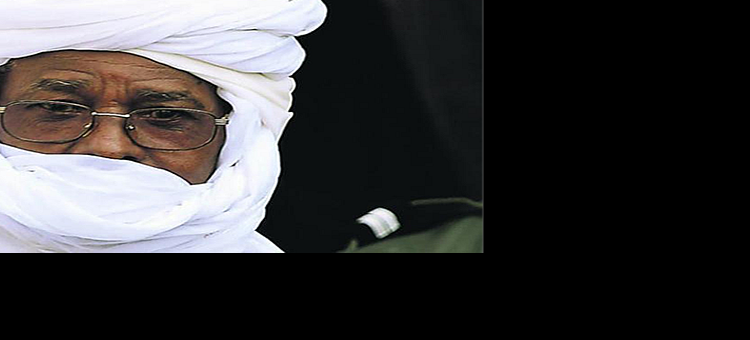By Rose Wanjiku
Hissene Habré, Chad’s former dictator, who has been handed a life sentence by the Extraordinary African Chambers delivers its decision in his war crimes case, had a boundless love for prisons.
Prisons, dotted all over Chad, and were the hallmark of his eight-year bloody rule which began when he shot his way to power in 1982 in a coup and ended suddenly in 1990, the same way. Habré was obsessed with prisons and had one right in his backyard for his presumed political enemies and ‘rebellious’ citizens.
His dreaded secret police, which was known as the Documentation and Security Directorate (DDS), converted a swimming pool into a torture chamber. Not content to only issue orders, sometimes Habré took matters into his own hands. One of the 93 victims, who was among thousands who have waited for 25 years for justice, testified that Habre had raped her. Ten other witnesses testified that they had personally seen Habré in prison or were sent to prison personally by him.
Habré, who was known as the African Pinochet and quite a talker, has remained silent throughout the 53 three days he was on trial. The only audible statement he made in public was to denounce the Extraordinary African Chambers (EAC), set up in Senegal in 2005 to try him for war crimes, crimes against humanity and torture.
Used to barking orders, Habré found it hard to obey rules and instructions. When the hearing of his case began, he had to be dragged to court by two muscled guards. Since then, he has had to be brought to court earlier before the sessions start and remain physically restrained to a chair, a tactic reminiscent of his days in power.
Born in 1942 to a shepherd family northernChad, little is known about Habré’s life before he obtained a post in the French colonial administration.
He first came to the world’s attention in 1974 when his rebel group captured three European hostages to ransom for money and arms. From then on, joined several rebel groups finally becoming the leader of Armed Forces for the North. He became Prime Minister in 1978 and after five years, installed himself as the President in 1982 through a coup d’etat. He fled to exile in Senegal, where he lived for 22 years before his arrest. He married in Senegal, had children and was one of the elders in the village where he lived.
Propped by the US and France to fight then Libyan leader Muammar Gaddafi, Habré turned into a bloodthirsty despot. By the time he was toppled, he is said to have overseen the systematic killings of 40, 000 and torture of 20,000 people mainly from tribes other than his own in Chad.
When the trial started, as expected, Habré and his lawyer refused to appear at the opening in July 2015 because they did not consider the court legitimate.
Unmoved, the African Union-backed court appointed three Senegalese lawyers to defend him and adjourned for 45 days to allow them to prepare. The first day, on September 7, Habré was brought in to the court by force, kicking and screaming.
After that, he was brought into the courtroom for each session before the doors to the public opened. His trial is a landmark in several respects: It is the first prosecution of its kind in Africa – of a former African president by a court in another African country supported by the African Union.
Many countries on the continent have been unable to arrest Sudan President Omar al Bashir, who is wanted by the International Criminal Court to stand trial for war crimes in the Darfur region of Sudan.
The trial is also seen as a victory by the victims: “Never in a trial for mass crimes have the victims’ voices been so dominant,” says the Human Rights Watch, which has supported the trial process including by gathering important evidence against Habre.
The trial ended on February 11, 2016. For two days starting Monday, Habré will sit in court in a culmination of a trial process that has internationally been hailed as one of the world’s most patient and tenacious campaigns for justice. Over 93 witnesses testified, each describing the gory details of torture and murder under his regime.
Habré was first indicted by a Senegalese judge in 2000, but for the next 12 years, the Senegalese government of former President Abdoulaye Wade refused to arrest and try him.
It was only in 2012, when Macky Sall became president and the International Court of Justice ordered Senegal to prosecute Habré or extradite him that action was taken.
The African Union has encouraged its members to adopt legislation to give their national courts universal jurisdiction over war crimes, crimes against humanity and genocide. Several investigations have been opened in South Africa and Senegal on the basis of universal jurisdiction.
Habré was not tried at the ICC because the Court does not have jurisdiction over crimes committed before 2002 when the Rome Statute came into force.







